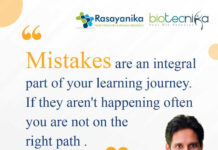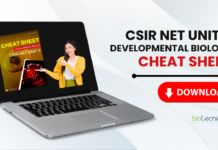Lumanity Hiring: Senior Research Associate
Job Title: Senior Research Associate
Company: Lumanity
Location: IN-HR-Gurugram
Job Description
Roles & Responsibilities of Senior Research Associate at Lumanity:
- We have an exciting opportunity for exuberant aspirants to join the Evidence Evaluation and Synthesis team in Lumanity as a Senior Research Associate (SRA). Evidence Evaluation and Synthesis is a dynamic team of researchers who are riding the wave of evolving needs in the healthcare industry and is looking for seasoned HEOR researchers to help expand our business across India.
- Evidence Evaluation and Synthesis team is a critical service line within Lumanity that generates evidence by conducting targeted and systematic literature reviews (SLRs), helping clients meet global and local HTA submission requirements. The team fosters innovative ideas by nurturing an environment of inclusive camaraderie to facilitate medical advances in building a healthier world. Our people’s work directly impacts the lives of patients, which is very fulfilling, but also a huge responsibility, and the key reason why our teams are empowered to continually learn, develop, and remain at the forefront of our profession.
- With this broader perspective, the SRA would be supporting on systematic or targeted literature review projects that form the evidence base for the diverse set of deliverables in the business unit we operate in. The SRA would also get opportunities to work and collaborate not only with our globally diverse workforce from diverse scientific backgrounds but also with our clients, thus gaining opportunities to upgrade their technical as well as consulting skillsets.
- The SRA will provide support on delegated literature review projects as the key resource who supports the SLR Project Lead in end-to-end SLR activities, including protocol designing, screening, full text search, grey literature searches, data extraction, and quality assessment. The SRA should be able to liaise with other resources, delegating SLR tasks to junior resources or peers, planning their daily schedule of activities, resolving any project-related queries, and QC’ing and compiling SLR tasks completed by junior resources.
- The SRA is expected to work within the broad project guidelines as directed by the SLR Project Lead. The SRA should be able to support the SLR Project Lead with project management activities and actively participate in project meetings and maintain good communication with the team members. The SRA is also expected to work collaboratively with other teams in Lumanity, including statisticians, health economics modelers, and HTA submission teams.
Qualification & Skills:
- Master’s degree in science preferably in pharmacology, pharmacy or life Science/MBBS/BDS/PhD, with at least 2 years of relevant experience in the SLR domain
- Good analytical and interpretation skills to understand client requirements and suggest bespoke solutions to the research question.
- Ability to work independently with minimal oversight within 3 months of joining.
- Proficiency in Microsoft Office suite (Excel, Word, PowerPoint)
- Excellent communication and interpersonal skills to manage junior resources and peers.
- Ability to identify and flag project/internal issues to senior colleagues and suggest apt solutions.
- Bonus Preference: Support Managers and Directors with development of technical HEOR proposals as part of business development
Opening for Senior Research Associate at Lumanity. Here are Some Possible Interview Questions and Answers:
1. Can you describe your experience with systematic literature reviews (SLRs) and their importance in healthcare research?
Answer: I have extensive experience with systematic literature reviews and understand their significance in healthcare research. SLRs are critical in generating evidence by systematically evaluating and synthesizing relevant studies. They are essential for meeting global and local Health Technology Assessment (HTA) submission requirements, which are crucial for informed healthcare decision-making.
2. How do you approach designing a protocol for a systematic literature review?
Answer: When designing a protocol for an SLR, I begin by clearly defining the research question and objectives. I then establish inclusion and exclusion criteria, define search strategies, and select appropriate databases. It’s crucial to outline the screening process, data extraction methods, and quality assessment criteria to ensure the review is rigorous and reproducible. Additionally, I consider any specific client requirements or guidelines that may apply.
3. How do you ensure the quality and reliability of data extracted during an SLR?
Answer: Maintaining the quality and reliability of data extracted during an SLR is paramount. I follow a standardized data extraction form and process, ensuring consistency across the team. I conduct regular team meetings to address any questions or discrepancies, and I perform quality checks to verify the accuracy and completeness of data. Additionally, I pay close attention to reporting biases and potential conflicts of interest in the included studies.
4. Can you provide an example of a challenging situation you faced during an SLR project and how you resolved it?
Answer: In one project, we encountered a lack of data in the selected studies for a specific outcome of interest. To address this challenge, I collaborated with the team to revisit our search strategy and expanded our search to include additional databases and sources of grey literature. We also reached out to experts in the field for any unpublished data or insights. This proactive approach allowed us to gather the necessary information and complete the review successfully.
5. How do you manage and delegate tasks within a team of researchers when working on an SLR project?
Answer: Effective task management and delegation are essential in an SLR project. I typically begin by assigning specific roles and responsibilities to team members based on their strengths and expertise. Regular communication and team meetings help ensure everyone is aligned and progressing smoothly. I also provide guidance and support to junior resources, address their questions promptly, and review their work for quality assurance. My goal is to foster a collaborative and productive team environment.
Editor’s Note: Please ensure you are subscribed to the Biotecnika Times Newsletter and our YouTube channel to be notified of the latest industry news. Follow us on social media like Twitter, Telegram, Facebook






























